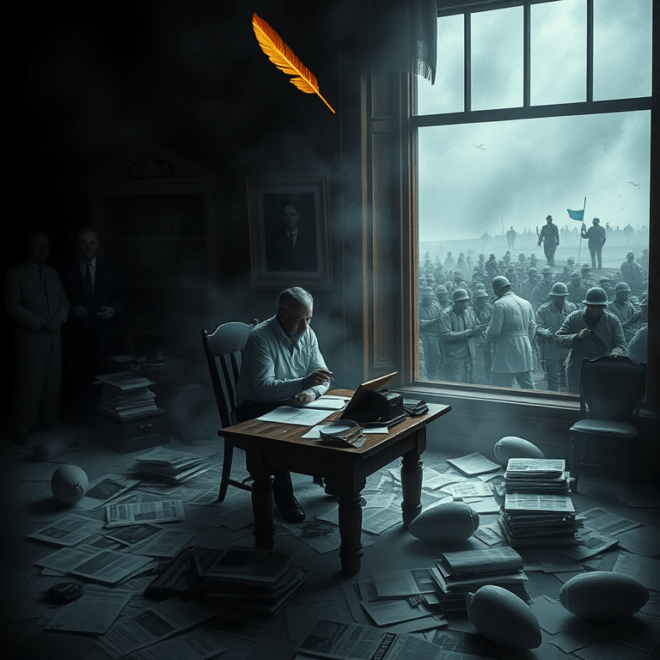
Once, journalists wielded the pen as a sword, shaping public opinion and holding power accountable. They were the watchdogs of society, the fearless crusaders of truth, and the voices for the voiceless. What has become of that noble pursuit? Today, it often seems that many journalists are mere puppets, dancing to the tunes of billionaire agendas, sacrificing truth and integrity for clicks and corporate interests. When did the pursuit of truth become a luxury rather than a fundamental duty?
In this climate of compromised ethics and diluted journalism, we find ourselves yearning for a figure like William Howard Russell, a man whose reporting not only chronicled the grim realities of war but also transformed public consciousness and government policy. As a foreign correspondent for The Times during the mid-19th century, Russell’s fearless dispatches from the frontlines of the Crimean War (1853-1856) exemplified the profound impact that dedicated journalism can have on society.
For 22 grueling months, Russell immersed himself in one of the most brutal conflicts of his time, witnessing firsthand the chaos, valour, and suffering that unfolded on the battlefield. His reports painted a vivid picture of the war’s horrors, most notably the infamous Charge of the Light Brigade and the Siege of Sevastopol. Yet, it was not just his detailed accounts of military manoeuvres that set him apart; it was his unwavering commitment to truth and his ability to empathise with the plight of soldiers on both sides of the conflict, including the Turks, Russians, and French. He transcended national boundaries, capturing the universal suffering that war inflicts upon humanity.
One of the most significant moments in Russell’s career came in October 1854 when he witnessed the Charge of the Light Brigade from a vantage point above the battlefield. The aftermath of that tragic event compelled him to seek out survivors and piece together the harrowing narrative. Exhausted and hungry, he returned to his tent, where he meticulously crafted a 4,000-word dispatch that would define his legacy. Despite the arduous journey it took for his report to reach London, the headline “The War in the Crimea” ignited a firestorm of public interest and outrage.
Russell’s evocative prose resonated deeply with readers, beginning with his powerful opening: “If the exhibition of the most really brilliant valour, of the excess of courage, and of a daring which would have reflected lustre on the best stage of chivalry can afford a full consolation for the disaster of today, we can have no reason to regret the melancholy loss which we sustained in a contest with a savage and barbarian enemy.” This poignant narrative did more than inform; it stirred the British public’s conscience, prompting a profound re-evaluation of the government’s treatment of its troops.
The ramifications of Russell’s journalism were far-reaching. His reports inspired a wave of reform, most notably influencing Florence Nightingale to revolutionise battlefield care, leading to significant improvements in medical practices. His accounts were so compelling that they were read aloud in the House of Commons, swaying public opinion and contributing to political upheaval, including the downfall of the government in early 1855.
In the annals of journalism, William Howard Russell stands as a towering figure – arguably the most influential correspondent the world has ever seen. His legacy serves as a stark reminder of the profound power of the written word, capable of influencing history for better or worse. In an age where media continues to shape narratives and public discourse, Russell’s work exemplifies the vital role journalists play in holding power accountable and advocating for change.
As we reflect on Russell’s extraordinary contributions, we must ask ourselves: Where are the modern-day Russell’s? Where are the journalists who prioritise truth over sensationalism, integrity over profit, and accountability over complacency? The world desperately needs another William Howard Russell – an unwavering champion of truth, a voice for the oppressed, and a fierce critic of power.
Let us not forget that the pen can indeed be mightier than the sword. It is time to reclaim the spirit of journalism that Russell embodied and demand a return to the pursuit of truth as a fundamental duty. The stakes have never been higher, and the world needs journalists who are willing to stand up, speak out, and wield their pens with the same courage and conviction that defined the legacy of William Howard Russell.


